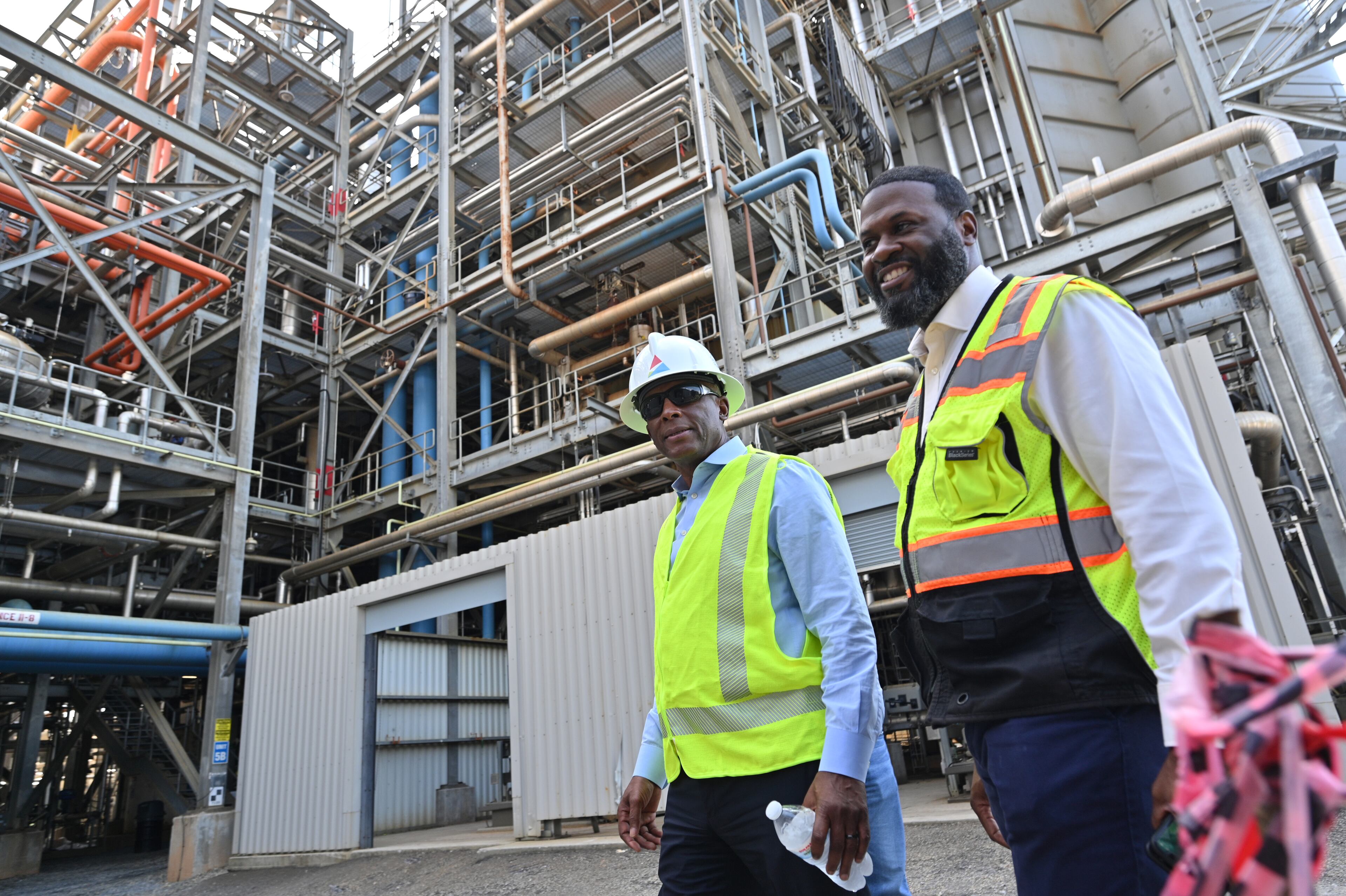Everything you need to know about Georgia Power’s proposed rate hike

Georgia Power on Tuesday will begin to make its case to state regulators to approve new electricity rates. And if the utility gets its way, the company’s 2.7 million customers would start paying much more on their monthly power bills starting next year.
The company filed a formal request in June with the Georgia Public Service Commission (PSC) to raise rates by nearly 12% over the next three years.
But that proposed increase is not set in stone.
The PSC, led by Chairman Tricia Pridemore, is expected to vote on a rate plan by Dec. 20. And over the coming months, commission staff, local cities and counties, energy interest groups, consumer watchdogs and members of the public will have the opportunity to weigh in Georgia Power’s proposal.
As the hearings on the new rates kickoff this week, here’s what you need to know.
What is Georgia Power asking for? And how will it affect me?
Georgia Power is asking for a rate increase totaling roughly $2.8 billion over three years.
The proposed rates are front loaded, with the largest hikes set to take effect in 2023. If approved, the average household could see their bill climb by $14.32 each month next year, the company said, for a total average annual increase of nearly $172.
Monthly rates would rise by an additional $1.35 per month in 2024 and by another $0.62 per month in 2025.

The hikes likely won’t be felt evenly across the state.
Households and small businesses are expected to see increases of 11.4% and 12.0%, respectively on their electricity bills, exceeding the projected increases of 9.8% for large businesses and 9.9% for “governments/institutions.” Georgia Power blames fuel costs for the disparity.
Critics say the proposed rates will add financial strain to Georgia Power customers — particularly those in Black and lower-income communities — at a time of growing economic anxiety.
The company’s proposal also includes a request to raise the return on equity investments it receives from 10.5% to 11%, a move likely to benefit shareholders of Georgia Power’s parent, Southern Co. In filings, Georgia Power executives have said such an increase is needed to maintain “the company’s financial integrity.”
Why is Georgia Power requesting this increase now? And why?
Georgia Power is required to file a new rate case every three years. This latest rate increase dwarfs the nearly $1.8 billion plan approved in 2019 by the PSC.
This rate request follows approval of the company’s long-term power generation plans this summer, which calls for Georgia Power to continue phasing out its coal plants, while increasing reliance on solar and gas.
During an interview in June, Georgia Power Chairman and CEO Chris Womack said the increases are needed to modernize the grid, continue the transition away from fossil fuels and improve customer service.

A significant chunk of the new $2.8 billion request rate increase request — roughly $395 million — would go toward covering the cost of cleaning up coal ash, a toxic byproduct left behind from burning coal, which Georgia Power stores at dozens of sites around the state.
Earlier this year, Georgia Power won a legal victory in a case brought by the Sierra Club, clearing the way for the company to pass on coal ash costs to customers through electricity rates.
In addition to the cost, what other issues could come up?
The issue of rooftop solar is expected to be the subject of intense focus in the hearings, especially after generous new federal tax credits for installations were signed into law this summer by President Joe Biden.
The PSC created a pilot program in 2019 to allow property owners with rooftop solar to dramatically lower their energy bills, but the pilot was limited to 5,000 participants and has been maxed out since July 2021.
A proposal from Commissioner Tim Echols’ to open enrollment to another 75,000 participants failed but the commissioners are expected to revisit the issue.
Georgia Power has repeatedly voiced opposition to expansion. Meanwhile, clean energy advocates and trade groups have warned that inaction risks stunting the state’s solar industry.
Are more rate increases coming in the future?
Probably so.
Georgia Power’s proposed rate increases do not include the cost of Plant Vogtle’s two new nuclear reactors, which are years behind schedule and billions over budget. PSC staff have estimated that Georgia Power customers will have paid $900 for the units in their monthly power bills before they’ve generated a watt of power.
Depending on how much of those additional costs state regulators allow the company to recover in rates, many Georgians could see their electricity bills climb even higher in the years to come.
Georgia Power has estimated that baking in Vogtle costs that have been deemed reasonable so far by the PSC could drive customers’ electricity rates up by 10%. However, analysis by PSC staff has found that if the company’s full project costs are factored in, the potential increase could be closer to 13%.
Georgia Power rate case hearing details.
When: Tuesday-Thursday at 9:30 a.m.
Where: Georgia Public Service Commission hearing room 110, 244 Washington St. SW, Atlanta, GA 30334. The hearings will also be streamed on the PSC’s YouTube channel.
Public comments: The first hour of each hearing day will be reserved for public input, but speakers will be limited to three minutes in front of the commissioners. Those who aren’t able to speak during that one hour will have to return to a subsequent hearing. The commission will accept public comments through an online portal and by email at gapsc@psc.ga.gov.


